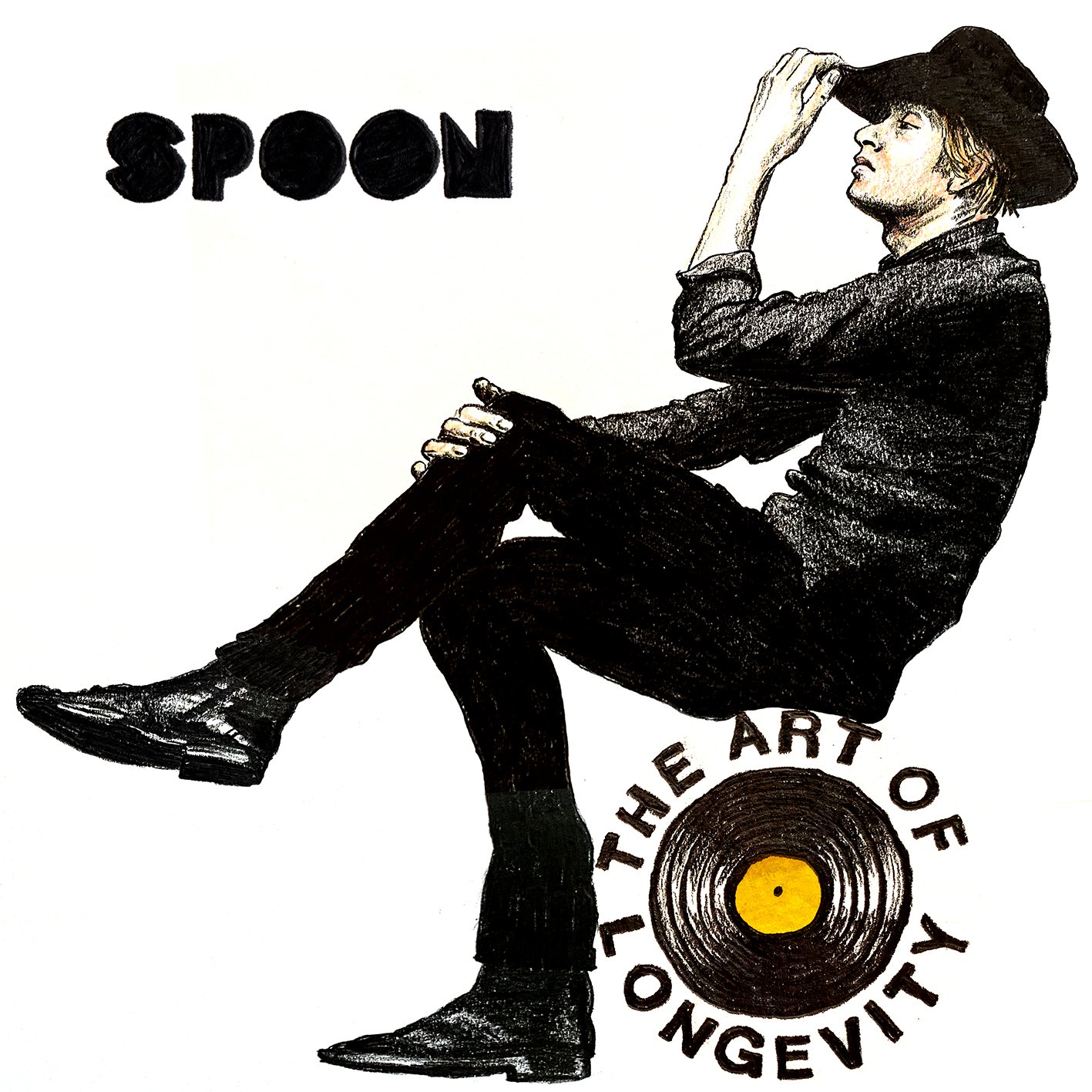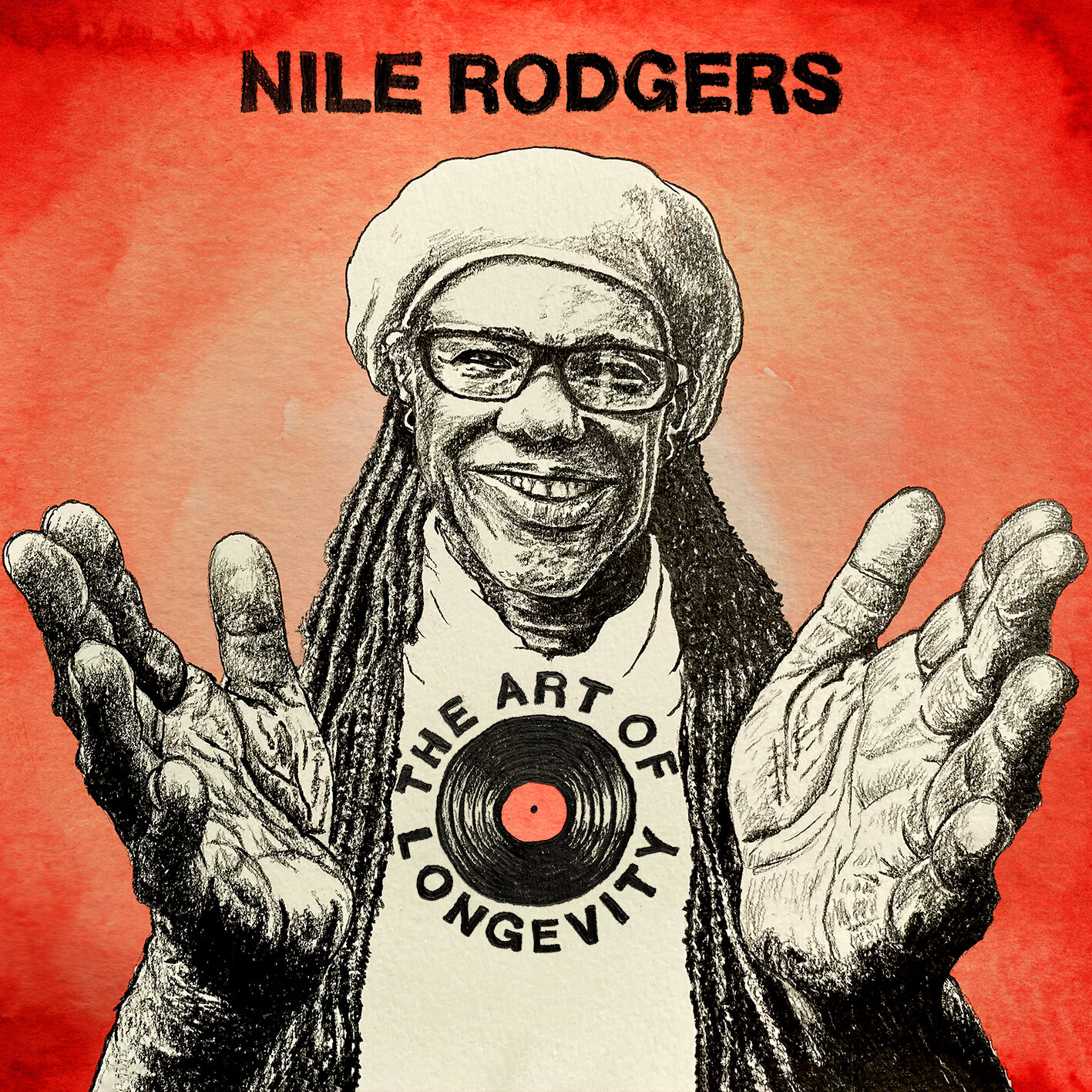the art of longevity...Season 11.
hop aboard music's rollercoaster ride.
the art of longevity...Season 11. hop aboard music's rollercoaster ride.
“I do commune with the ancestors. I know I’m standing on the shoulders of many who came before me. I feel them beside me as I’m talking now. I’m not doing this by myself. I wanted to understand my people through music, and I got there through studying the blues”. Valerie June carries a great weight lightly, and her music will bring you joy. All you have to do is listen, really listen.
Albums remain key milestones for artists, each one an important body of work that, as a whole, come to represent the artist’s career more than any other expression of their work. When an old band makes a new record, the acid test has to be whether or not it has the quality to add something of significance to the oeuvre. Has Deacon Blue accomplished it with The Great Western Road? We talk to Ricky Ross about why new stuff is still worth the bother.
“Of course we all want our work to be successful, me included. But I’ve ridden the rollercoaster so many times now, I know the outcome is always the same, whether people like a record or not, I still had to deal with my own depression and self loathing. External validation will not fill that hole, you can only do it yourself, love yourself and try to see things more clearly”. Jim James can see clearly now. And his band My Morning Jacket are sounding better than ever as a result.
If the best artists create a world in which their work can come alive and their fans can escape from the humdrum of life and the worries of the world, then Tindersticks are the perfect example. But beware those who enter, this world is not perfect and to overuse typical adjectives, it is dark and disconcerting. It’s also strangely comforting. We explore it more fully with Stuart Staples.
New album Constellations For The Lonely is another creative high for a band that is definitely, somehow, still underrated. Yet at the heart of Doves is a creative power that they can rely on, even when they operate as three or two. Underrated maybe, resilient definitely.
If the route to longevity is to be bendable into the music industry’s rules for success, The Lumineers really shouldn’t be here at all. It makes no sense. The duo of Wesley Schultz and Jeremiah Fraites have thought about it all, a lot. Indeed, you could say that The Lumineers self-awareness seems to be the real root of their ultimate success and longevity.
How does such an uncompromising, singular artist survive in today’s content-flooded music business? “I practice daily to avoid the whole ‘compare and despair’. Keep the focus on myself and make the best music I possibly can and then I’m a happy person”. If Joan As Police Woman is happy, then we are grateful she keeps on making such damn fine music.
It’s a beautiful thing, school friends getting together to form a band. But, when that band goes on to achieve phenomenal, global success - commercial and creative world beating success - well that’s not just a beautiful thing but a dream come true. Keane fit that bill perfectly. And yet it isn’t ever really like that on the inside. As Tim Rice-Oxley reveals…
Los Campesinos! have just found a route to a larger audience. “We’ve always looked for validation elsewhere, but to achieve the best reviews of our career and chart position [for All Hell] is very flattering and something we appreciate more now than at any other point in our career.” It remains to be seen if the glut of year end ‘best albums of’ lists remember to include All Hell, if indeed they considered the record a suitable candidate. Well, it’s on my list.
30 years on from first throwing his hat into the ring (he was signed and dropped by labels twice before he even got to releasing White Ladder in 1998), David Gray is in that zone of form we love on The Art of Longevity - the one that blasts the jaded view of mature artists withering on the vine, to dust. “The disprovers are waiting every time you do something new. But I’m a very determined person”. He is literally making music for Dear Life. We hear him.
“I fell in love with comedy, I fell in love with extreme performance, I fell in love with Rap music. All of those things inform who I am. I couldn’t have been a polite concert pianist. It just wasn’t in my DNA”. In our book, that makes Chilly Gonzales unique, and inimitable.
AI music can eat its heart out (if it had one).
In 1996, Nada Surf released their debut album, High/Low, produced by The Cars legend Ric Ocasek. They got the major label mangle out of their system early on. Three decades later the band is on their 10th album Moon Mirror, on the rather cool indie label New West Records. Nada Surf is one of those bands that made their way through a 30-year career and 10 studio albums without disturbing the charts. Yet the band has never made a bad record and of that Matthew Caws is reluctantly proud…
The Guardian: “This new podcast explores the long game. Each episode speaks to a band whose career has spanned decades and whose success has ebbed and flowed as tastes have shifted around them”.
The Sunday Times: “The questions are informed and the guests are trusting, forthcoming and insightful”.
The Yorkshire Post: “These episodes act as mini-TED Talks for aspiring musicians, but for your casual music fan, they’re just a great listen”.
The Observer: “A long-standing contribution to the “music talk” podcast genre, hosted by music business executive Keith Jopling. He is affable and the musician guests respond accordingly”.
The Guardian (Saturday): “Music industry executive Keith Jopling explores how bands have kept the creative flame alive in this incisive series”.
“It’s all a miracle to me that I still get to make music as my job. I’m lucky, but you have to get yourself in the best position to receive it when luck strikes”. E has ridden luck, tragedy, line-up changes and at least one alter ego. The man (and hey, don’t forget his band, Eels) is still really living. As he releases album 15, we talk about the unconscious art of longevity…
“I feel like I’ve got songs that are more classic that are yet to come. I used to dream about making a record that would transcend a generation, but now I just want to make a record that sounds like a classic to me”. Marika Hackman is getting better and better, so in our view she can make whatever kind of record she likes and we’re all ears. You should be too…
Travis have a quiet, understated confidence and self belief. They’ve been brushing it under the carpet for three decades (apart from the time they dominated the UK pop scene). These days, they enjoy an intrinsic kind of success. Fran Healy explains…
“My greatest achievement would be to write a song I would never get bored of singing”. Ed Harcourt shares the story of his career in music.
Crowded House cracked the code to healthy longevity. Classic songs, great stagecraft, a relaxed attitude to ‘success’ and a continuous desire to create something new that’s actually good. But do band founders Neil Finn and Nick Seymour believe they can make another classic album?
Variety: “Seeking Longevity in a Streaming World: What Norah Jones, Death Cab for Cutie and Los Lobos Did Right”.
British Podcast Awards: “Deep dives into the lives and careers of iconic musical artists - all sides of them - including the glamorous and the rest”.
Music Week: “Host Keith Jopling tells us all about the podcast which looks at how various artists have navigated the mangle of the music industry”.
The Ivor’s Academy: “Keith Jopling, creator and host, explores the role of songcraft over long careers in music”.
The 4th album can feel like something of a chasm to cross for any band. But for The Staves, this upcoming 4th L.P. record All Now is symbolic on a number of levels…there’s a lot to keeping a band rolling but somehow they keep on getting better nevertheless.
Staunchly indie band Metric have taken the art of longevity a little further than just making consistently good albums and then taking those records on tour. I suggest what has been accomplished is a ‘quiet legend’; the sum of longevity, a fantastic back catalogue and a loyal fan base. But while quiet legend may be a formula for sustaining a career, would a bona fide hit be nice? I ask frontwoman and songwriter Emily Haines…
The very best music doesn’t always naturally rise to the top. Perhaps Half Moon Run will keep running purely on the strength and passion of the band’s existing fanbase. It’s those fans that are frustrated about the band’s relative lack of recognition. But the band doesn’t care much and besides, they’ve made a classic album. Will that change things? We explore in-depth with the band’s principal song arranger, Dylan Phillips.
What drives longevity when it comes to classic rock? Consistently good albums, huge singalong songs, close-knit relationships and hard work. Mostly, though, the key to The Goo Goo Dolls longevity has been a focus purely on the music. “I’m not using music to launch my clothing line, or my cologne or my vodka. I’m a songwriter and a performer - that’s what I do - and I have been blessed enough and lucky enough to earn a living from it”. John Rezeznik lays his cards on the table…
A special episode to kick off Season 8 of The Art of Longevity with electronic pop pioneers Orchestral Manoeuvres in the Dark. For a band that started by making songs up as they went along (and learning to play their instruments at the same time), they arrive mid-way through a fifth decade in the business in fine creative fettle. How on earth did that happen? Fenner Pearson finds out…
When I suggest the likes of Duff McKagan and his generation of heavy rock legends have invited Corey Taylor to take on the ‘legends’ baton, he immediately shifts the spotlight on to the next generation, “because (being a career musician) is a dying art”. Not if Corey has anything to do about it. Find out what makes this future (current?) legend tick…
With six albums and some older EPs to perform, there is no need - not yet - for any meaningful discussion about new material by The Walkmen. But it is reassuring and exciting to know that Hamilton Leithauser and bandmates haven’t ruled it out. For now we can be happy enough that a particularly noticeable void has been filled.
Ron Sexsmith is turning 60 soon and plans a review tour “Sexsmith at 60”. We need to make it happen. As at right now, he is contented and grateful. “I’m glad I got in then and I’ve been been able to have a career and build a catalogue. I wouldn’t want to be starting out now. I Wouldn’t know how”. We can be thankful he got in the music business at all.
In the 90s he brought us piano-led rock. As a solo artist, he pioneered sustainable touring and was one of the first truly independent artists. Now, he’s a music educator and advocate. Just so happens that Ben Folds is also still very funny and still very much a master singer-songwriter. Are you not entertained?
Those who have his ear have muttered that he is on the verge of making a classic. That he should make a record more like Queen Of Denmark - his groundbreaking, genre-bending debut solo work. That if only he would lighten up on his lyrical themes, he is bound to have more commercial success. Blah Blah blah. But the man has a singular vision. We do not want John Grant by way of compromise!
What does it mean to make a classic album in 2023? “We’ve taken in the classic bands we’ve come across in our adulthood, The Rolling Stones, Fleetwood Mac - who would not be influenced by those”. But we keep asking ourselves the question, do we like this? This has to be us. I hope that we’ve made an album that lasts through time”. A conversation about modern day success in music, with Joseph.
On paper, the ideal band to help us discover the secrets to longevous success; how bands can stay relevant and keep steadily getting better over the years. Except Mogwai never had a grand plan. “We weren't expecting to be making 5/ 6 albums, never mind 10/11”. And yet, their star keeps rising. Do they secretly own a spaceship? We find out…
Rickie Lee Jones thought her many years in the commercial music wilderness was penance for her early 'success, despite the fact that she struggled for years to find her destiny in music. “I thought, maybe this was payment for having so much success so fast. The thing is to teach the audience that you are not just a pop artist but that you are a real musician”. Welcome to the renaissance of Rickie Lee!
After 30 years in the game (give or take), Bush are having a creative renaissance. Long and successful careers in rock bands are not linear processes, nor are they straightforward to handle, psychologically. But Gavin Rossdale has this longevity thing down. “I’m never content with what I do. I have a very strange process of self doubt and imposter syndrome until something good breaks through - then I think, “for fucks sake shut-up”, and I break through it”. We get inside his creative, busy mind…
Our Season 7 preview is with Dave Rowntree. It has taken him ages to make his first non-soundtrack body of work outside of Blur, but Radio Songs is better than perhaps even he imagined. Now it’s out there, he plans to make two more albums, if Blur doesn’t get in the way. But Rowntree is a busy man and he’s pretty good at managing agendas and dilemmas. Our first in-studio chat is a good one.
“We were this deeply alternative band that were there by accident really. We’ve always found inspiration in the shadows, it suits us. It’s why we’re still here”. That’s how Tom Smith explains Editors’ longevity. Embracing line-up changes as a new creative beginning is one of our revealed secrets of longevity. The band has learned to assimilate new members in a way that stands out as genuinely progressive, mature - perhaps even democratic. Not only that, but they’ve figured out the key to being a democratic band: no arseholes.
He found success twice over, first going professional at 15 and then with Supergrass in the 90s. But Gaz Coombes has steadily been building his solo career with a string of fine albums, including the superb Turn The Car Around. Gaz now operates very much in the new world of ‘artist as SME’. With an independent label and self-funded touring, he has become yet another singer-songwriter as reluctant CEO. But who wouldn’t invest in Gaz Coombes Limited? We get the lowdown on the third phase of his music career…
Rumer is a very untypical voice. Often compared with Karen Carpenter (we can’t help it with these comparisons in the music world, but in this case you can hear why), when Rumer first came across the radio waves in the summer of 2010 with the single Slow, the impact was clear. Here was an anachronism, an antidote to the deluge of pop going on at the time. A lot of water crossed under bridge and in her own words, this is a story of riding the record industry roller coaster and then some…
The Delines’ world is a sprawling, blue collar soap opera. Flawed characters, aimless drifters, chancers and grifters, barroom fights, beat-up cars, parking lots, convenience store robberies, messed up relationships and broken dreams. It’s so romantic, it is magnificent. As a recording band, The Delines are meticulous in rendering that world so perfectly. Remarkably, they can also do it live. I talk with Willy Vlautin and Amy Boone about how they do it…
Neil Arthur formed Blancmange with Stephen Luscombe in 1979, funded by a friend’s tax rebate! They secured a record deal with London records, and their first album, ‘Happy Families’ came out in 1982, springing a hit with ‘Living On The Ceiling’.
In this warm, friendly chat with Fenner Pearson, what comes across most clearly is Neil’s restless creative energy, from the studio where he records and develops his ideas, through to his enduring enjoyment of playing live, including his current tour where he performs with the enthusiasm and energy of someone who obviously relishes a live audience. Find out what makes this a prolific icon of electronic music tick…
Aqualung is the ‘one hit wonder’ that achieved longevity, including success in America, becoming a favourite of TV music supervisors, a go-to writer-producer for rising stars and all the time, a steadily developing musician and performer. Matt Hales’ classical training, eclectic influences and varied career has added up to the kind of musicality that will always produce music of real creative depth. As he mentions in our conversation, he can literally “do anything he wants”. Perhaps that’s the very definition of musical longevity. However, ambitious musicians beware - if that’s what you want, then as Matt advises, be prepared to fight for it “like having a little chick that you need to keep alive. Why would you ever think it might be easy!” Find out how he’s navigated not one, but three careers in music…
I spoke to Brett Anderson of Suede on the eve of the release of Autofiction and found him in fine fettle, excited at the prospect of promoting the record and discovering how it would land with both critics and fans (it landed safe and sound). This isn’t just another episode of The Art of Longevity but one in which Brett and I discuss the whole concept of the show, which he inspired. Once we’ve established ‘Brett’s Curve’ as a thing, the honorary PHD will be in the post…
Ben Gibbard is grateful for the slow & steady ride that is Death Cab For Cutie. “If there is one element of our career I’m grateful for, it’s having the time to develop as a band at the beginning, before anyone knew who we were. If we were to launch now at the age we were then – 21, 22 – we would have imploded from the pressure”. Instead, they are making some of the best music of their 25 year career, with a zest for life and renewed appetite for noise…
Embrace have been through the cycle of “Brett’s Curve” at least twice - the struggle (1990-’96), stratospheric rise (their debut The Good Will Out), the crash to the bottom (that first time dropped by their label) and enlightenment (Out Of Nothing). And then all over again. Danny McNamara is warm, funny and a lot more like other people than he might think (except those hedge fund gangsters and tech billionaires).
Alela Diane makes music as an antidote, to the fast times we live in and the dark days we are going through. Her brand new album is about “feeling the lightness and the darkness of the world at large. How do you get through your day-to-day life? How do we create a sweet, peaceful world for your children when there’s a lot of chaos out there”. We talk about many things including the tradition of making music to listen to and not just hear…
There is a sense of the collective unit about everything Interpol does. As Daniel Kessler puts it: “I would bet on Paul and Dan as creative forces every time.” We explore the inner workings of a lasting brand with a cool exterior and an unbreakable interior. Balance, unity and progress. The other side of Interpol…
Sometimes a band requires a style of leadership a Chairperson of the board would kill for. Mike Scott has it. He can see the whole picture. Indeed, in our conversation he is most animated when talking about other band members, old and new. He is excited at the prospect of taking The Waterboys out on the road with a whole new line-up. The Waterboys’ bandwagon rolls on…
Everything Everything were once described as “riot in a melody factory”, yet on the new album Raw Data Feel, I get the sense that the band has learned the craft of what to leave out. I discuss the craft of making a fine record in a rush, and not overthinking, with singer and co-writer Jonathan Higgs.
It is no surprise to hear that the inspiration behind Nerina Pallot’s superb new album are the ‘proper pop’ tunes of the 70s: Kate Bush, Stevie Wonder, ABBA, Barry Gibb, Judie Tzuke, Leo Sayer, Carole King and Elkie Brooks! Radio-friendly grown-up pop that would be nice to hear on the radio, when radio is ready to grow-up! Tune-in and have fun!
Inspired by recent collaborations with some of America's indie A-listers (Vampire Weekend's Ezra Koenig, Danielle Haim, Justin Vernon aka Bon Iver, James Mercer, Jamila Woods) the Bruce Hornsby renaissance is something to behold - for fans and fellow musicians. Is he really that cool?
The Divine Comedy’s Neil Hannon takes time out to evaluate his career as ‘pop star’ or in his words “musical entity, singer-songwriter”! The gentle rollercoaster is still going strong. It’s a charmed life. And it is all down to those songs!
If all music artists of longevity have a good book in them, then Belle and Sebastian are more bookish than most - wry observations of everyday life, spun into song in a way that seems natural and effortless, though is really the result of hard graft and fine craft. Stuart Murdoch tells it straight.
The Wombats have defied all UK press scepticism (and cynicism) to become one of the country’s biggest indie pop bands. Big streaming audiences, huge social media followings and a multi-generational fanbase. How did the indie underdogs get this good?
In a warm and whimsical conversation with Yan (Scott Wilkinson) of Sea Power, I learned to appreciate just what this unique band has achieved. With the recent name change, I might suggest the band wears its status as National Treasure with a certain irony.
A thoroughly enjoyable career-spanning conversation with Britt Daniel of US indie rock legends Spoon, on the eve of another fine album Lucifer On The Sofa (number 10) and extensive US tour. Not Europe though! Well, next year is the band’s 30th year in the biz, so we’re working on it…listen in!
In a world in which music is in great abundance, what Suzanne Vega does is as rare as things can get, exemplified by her recent run of shows for “An Evening of New York Songs & Stories”. In Episode 1 of Season 3 of The Art of Longevity we get under the skin of her wonderful career in song.
Danish alternative rock band Mew make amazing music and follow an unusual path, away from the usual ‘always on’ or album-tour-album cycle. Singer and composer Jonas Bjerre joins Keith for a chat about creativity, longevity and, not having FOMO. Refreshing.
In many songs by British trio Fink, there is an everyday mystery to be unravelled. Beneath the vignettes of the mundanity of ordinary life, something simmers away. On The Art of Longevity, Fin Greenhall and Keith discuss one of the most intriguing concepts in music today - that of making a song something more than a finite recording - but on ongoing story.
Is it possible to make your best record 33 years into a career? That’s what may just have happened with Canadian legends Barenaked Ladies and their 2021 release Detour De Force. When I spoke with Ed Robertson for episode 2 of season 2, he himself seemed pleased with the results, and the usual whistle-stop career chat ensued with Ed’s good humour and casual reflection. A Detour De Force Indeed!
KT Tunstall’s journey is close to the classic Art of Longevity curve: a decade long struggle to get heard, the stratospheric rise to the top, the pressure drop and then years of wrestling between her own creative instincts and the commercial demands of the industry. Through it all KT understood that the record label’s job is business, while what she does is make art. That attitude has seen her navigate the industry mangle to come out the other side stronger, more rounded as an artist and, if you listen to her 8th album NUT, still making platinum grade pop-rock.
Funny that some 20 years after their debut, The Coral has made an album that sounds more like themselves than anything else they’ve done. In episode 7 of The Art of Longevity, James Skelly walks me through the rest of this remarkable band’s story in a conversation we both thoroughly enjoyed, partly because I was so impressed by the combination of working class ambition, humble wisdom and complete dedication to artistry. Pass it on.
Music critics have tried to classify the music made by North East England’s Maximo Park for the past two decades, eventually converging on the term ‘art pop’. There’s a bit more to it than that. Keith’s chat with lead singer and co-songwriter Paul Smith reveals the band’s philosophy from the early beginnings to their most recent and best album yet.
From day one in 1983, James had a philosophy and pact to always take risks - whether that be creating new songs from jam sessions to walking out on stage in front of the crowd before finalising the set. James’ are driven to experiment,. It’s the essence to their longevity of four decades, as singer Tim Booth tells Keith Jopling.
Nile Rodgers’ virtuosity, self-made belief systems and work ethic pays dividends commercially for almost every artist he and the Chic Organisation worked with and in many cases helps supercharge their careers. What is the secret of his success and those he’s worked with?
A celebratory and reflective discussion with Laura Veirs. Her rise to fame came with 2004’s Carbon Glacier, the first of four records steeped in and themed on, nature and the elements. We begin our conversation for The Art of Longevity with fire - the epic perfection of July Flame.
the fantasy setlist
Our first pilot podcast outing was The Fantasy Setlist, in which guests join Keith to discuss their perfect setting for a very special one night only show with a favourite artist. And they get to curate the setlist from beginning to end. It’s great fun and we may bring it back soon!













































































